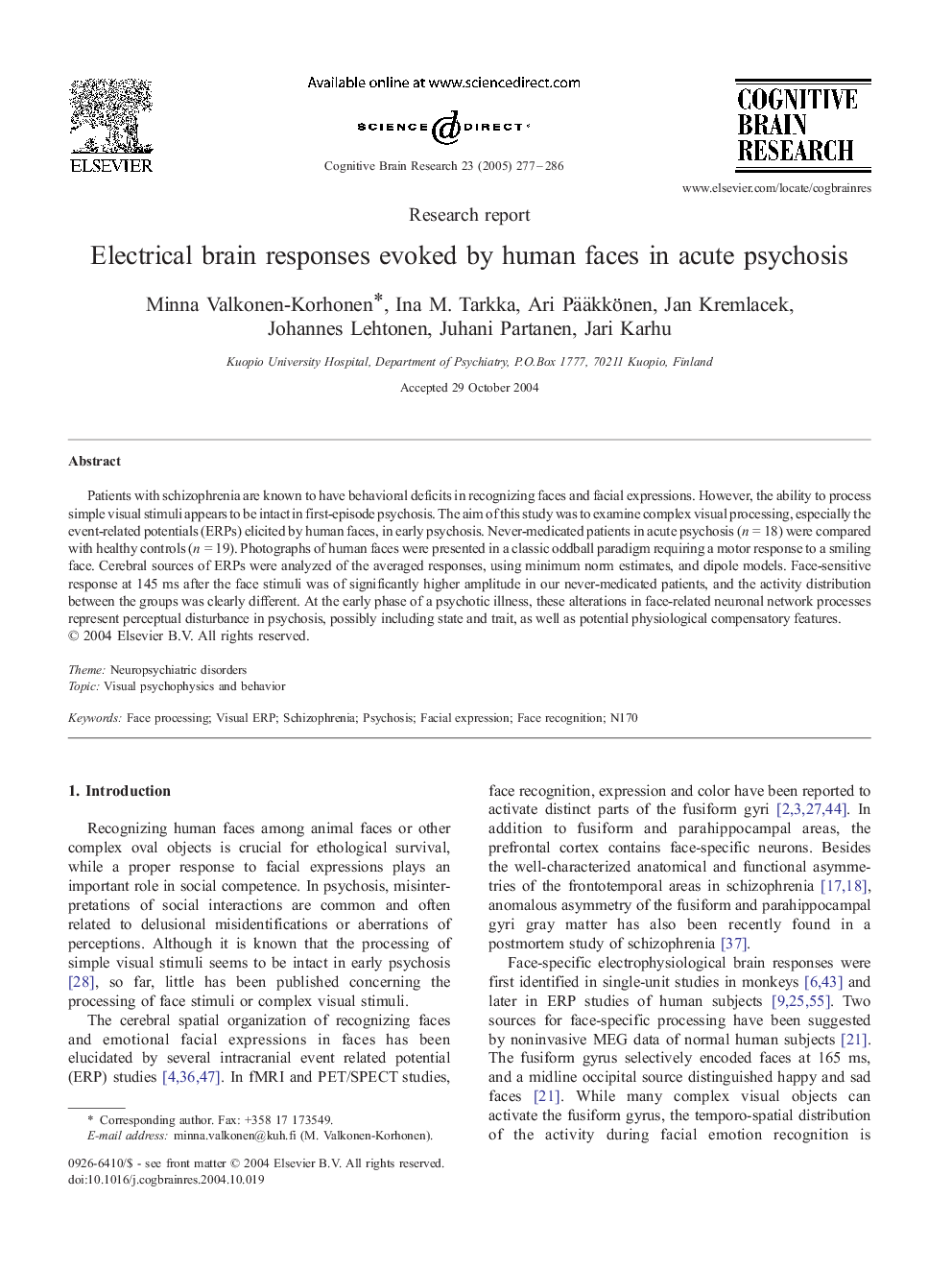| Article ID | Journal | Published Year | Pages | File Type |
|---|---|---|---|---|
| 9408148 | Cognitive Brain Research | 2005 | 10 Pages |
Abstract
Patients with schizophrenia are known to have behavioral deficits in recognizing faces and facial expressions. However, the ability to process simple visual stimuli appears to be intact in first-episode psychosis. The aim of this study was to examine complex visual processing, especially the event-related potentials (ERPs) elicited by human faces, in early psychosis. Never-medicated patients in acute psychosis (n=18) were compared with healthy controls (n=19). Photographs of human faces were presented in a classic oddball paradigm requiring a motor response to a smiling face. Cerebral sources of ERPs were analyzed of the averaged responses, using minimum norm estimates, and dipole models. Face-sensitive response at 145 ms after the face stimuli was of significantly higher amplitude in our never-medicated patients, and the activity distribution between the groups was clearly different. At the early phase of a psychotic illness, these alterations in face-related neuronal network processes represent perceptual disturbance in psychosis, possibly including state and trait, as well as potential physiological compensatory features.
Keywords
Related Topics
Life Sciences
Neuroscience
Behavioral Neuroscience
Authors
Minna Valkonen-Korhonen, Ina M. Tarkka, Ari Pääkkönen, Jan Kremlacek, Johannes Lehtonen, Juhani Partanen, Jari Karhu,
